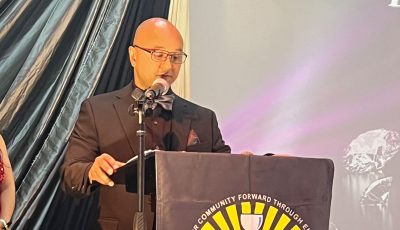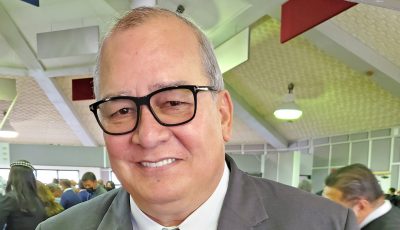‘Converting all CWs to H1s, H2s is difficult’
Immigration lawyer Bruce Mailman said it is very difficult to convert CNMI-only contract workers to H1 or H2 visa holders.
Responding to questions from the business sector and the Commonwealth Healthcare Corp. during yesterday’s Society for Human Resource Management NMI Chapter meeting at the Pacific Islands Club, Mailman said this is particularly difficult for an H1 visa because it applies to specialty occupations.
“When you sign the attestation as an employer for a CW employer, you are attesting and swearing, under penalty of perjury, that the position is not qualified for any other nonimmigrant status. So if you want to change someone from a CW to an H1, because they just so happen to have a four-year degree and are qualified and the position could be a specialty occupation, you’re going to have to change the position, the job title, and the actual job duties or [U.S. Citizenship and Immigration Service] is not going to buy it,” he said.
“H1 is a particularly difficult upgrade because you get very complicated requests for evidence. They are very skeptical that a CW is suddenly in a specialty occupation. We’ve had mixed reviews for example, in making accountants into comptrollers…it all comes down to the details,” he added.
“[In terms] of making nurses into H1, two-year nurses [those holding an associate degree in nursing]” cannot qualify. “For the four-year nurses, you’re still going to have to change their duties but this is really the time for them to consider the possibility of employment-based green cards,” he said.
“This works very well with CW because it’s a dual-intent visa. If you got a nonimmigrant visa [under current U.S. immigration conditions and not CNMI exceptions] and [USCIS] gets the slightest hint that you are what is called an intending immigrant, you are out. But with CW, H1, L1 and to some degree the investor visa, if you say to yourself that you’re going to take this nonimmigrant visa status and try to stay here, you can go for it. That’ll take a longer time but it encourages better workforce hiring practices for employers,” he said.
When looking into a conversion of status, Mailman said the prevailing wage, an increase in salary according to work duties, and the proposed Fair Labor Standard Act overtime rules are something to consider.
He said the U.S. Department of Labor’s proposed changes to FLSA overtime will significantly increase the salary that must be paid to exempt employees.
These changes include an anticipated increase minimum exempt salary from $23,660 to at least $40,000; well beyond that for highly compensated employees which is anticipated for over $122,000, automatic changes to salary threshold to keep pace with inflation and changes in definition of duties.
Although it’s an anticipated issue and not an immediate concern, he said that everyone must prepare since it is subject to national politics.



























